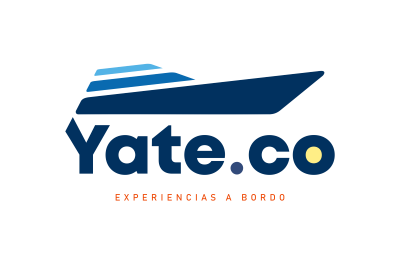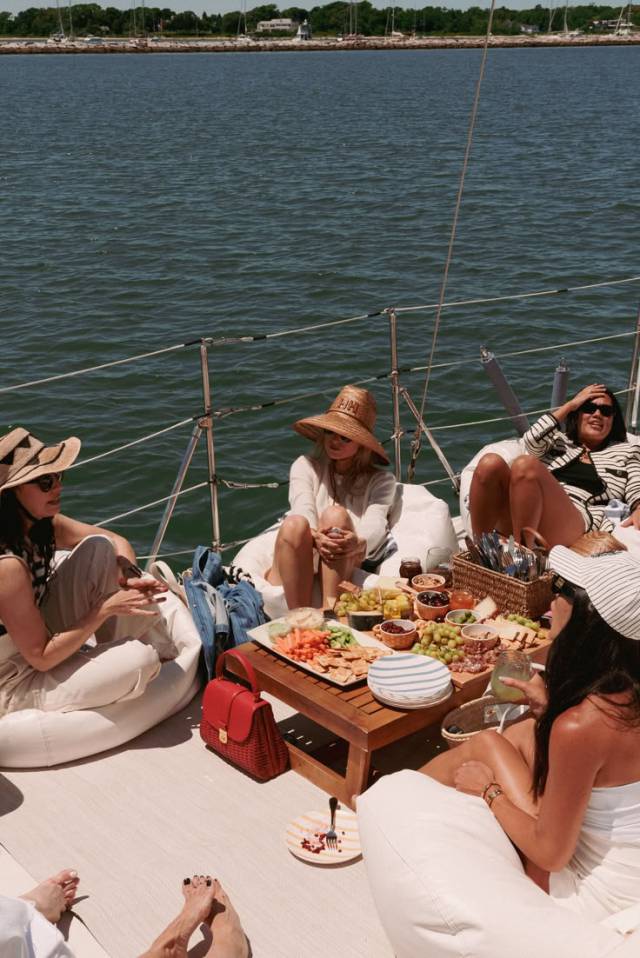Renting a boat is one of the best ways to enjoy the sea in total freedom and comfort. Whether you're planning a day trip, a weekend getaway or even a longer voyage, there's one key aspect you can't overlook: the food on board. And here an important question arises: is it worth hiring a chef to take care of the food preparation or is it better to cook on your own?
Both options have advantages and depend on a number of factors, including the type of boat you rent, the number of people on board, your budget, and of course, your personal preference. While a professional chef can provide you with exquisite dishes without you having to worry about a thing, cooking on your own gives you greater flexibility and a more hands-on experience during the trip.
If you're looking for a luxury experience where you can completely relax and enjoy gourmet meals, having a chef on board is a great option. However, if you prefer a more hands-on adventure and a closer atmosphere with friends or family, preparing your own dishes can be a fun and memorable experience.
You may also be interested in: Tips for bringing a chef on board
Advantages of having a chef on board
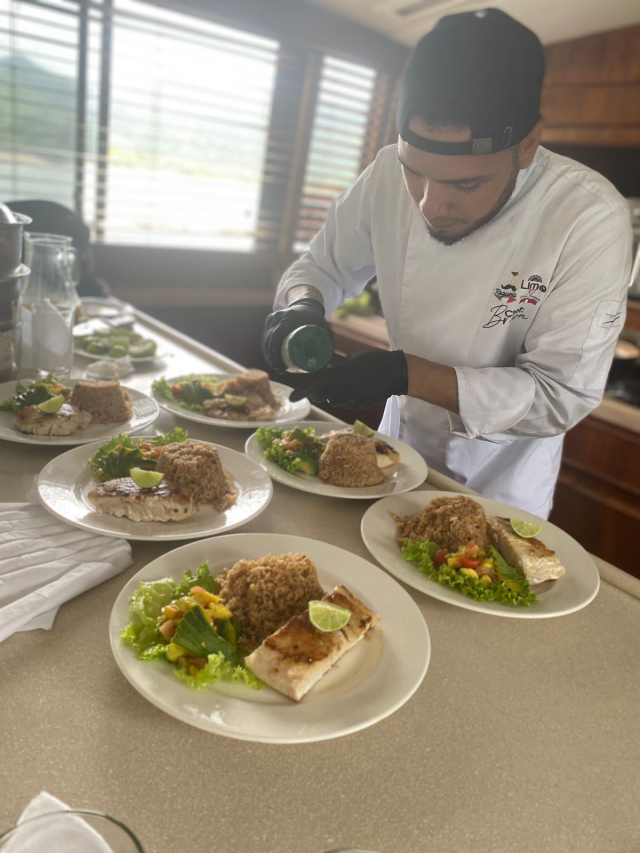
One of the main advantages of hiring a chef on your boat is absolute convenience . There is no need to worry about buying ingredients, planning menus or spending time cooking and cleaning. The chef takes care of everything , from selecting the best products to preparing exquisite dishes, tailored to the preferences and needs of the passengers. This allows travelers to fully focus on enjoying their time at sea, relaxing, exploring or simply admiring the scenery without interruption.
Another big advantage is the quality of the food . A professional chef has the experience and skills to prepare sophisticated dishes using fresh ingredients and high-level culinary techniques. This is especially beneficial on long trips, where the variety of food can make a big difference in the overall experience. From healthy breakfasts to gourmet dinners with freshly caught seafood, a chef can turn every meal into a special event.
Additionally, an onboard chef service offers a personalized experience . Whether you prefer a specific diet, have dietary restrictions, or simply want a menu tailored to your taste, a chef can accommodate your needs. This is especially valuable for groups with different culinary preferences or for those looking for a level of exclusivity and customization in their trip.
Finally, food safety is a plus. In an environment like the sea, where food storage and hygiene in preparation are crucial, having a professional ensures that everything is handled to the right standards. An experienced chef knows how to optimize the resources of the onboard kitchen, ensuring that the food remains in perfect condition throughout the voyage.
You may also be interested in: The best restaurants in the Cartagena Islands
Disadvantages of hiring a chef on your boat
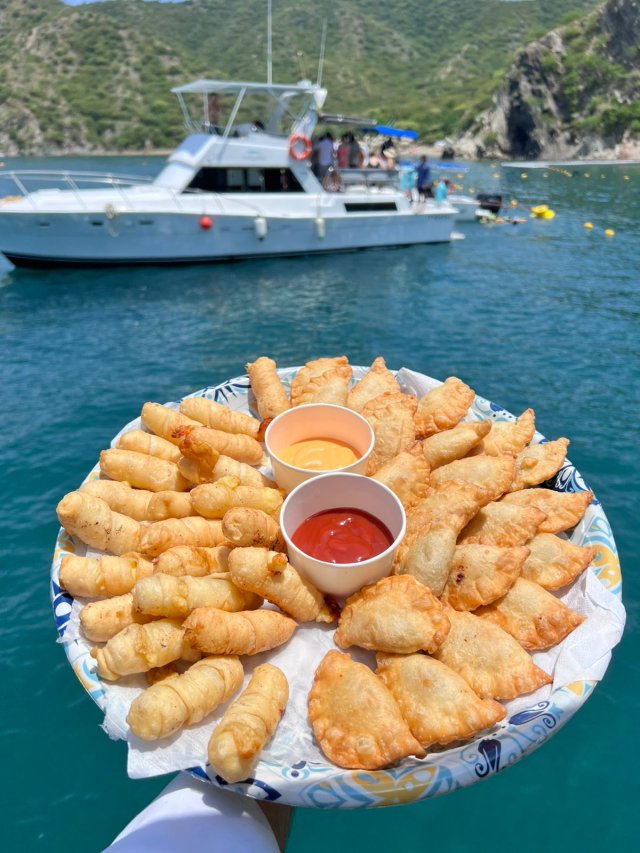
Despite its many benefits, having a chef on board also has its drawbacks, and the first of these is cost. This service represents a considerable additional expense compared to cooking on your own. Not only does it involve paying the chef, but also having adequate space within the boat for the professional to work comfortably. For travelers on tighter budgets, this option may not be viable. Another disadvantage is privacy. Although the chef is a professional trained to provide discreet service, his presence on the boat means that there is an additional person on board, which can reduce the feeling of intimacy, especially on smaller boats. For some travelers, sharing space with someone outside the group can be a drawback if they are looking for a more private and relaxed environment.
Finally, there are those who enjoy the experience of cooking at sea. Preparing food on board can be part of the charm of the trip, fostering conviviality among passengers and creating memorable moments around the kitchen. For those who see cooking as a pleasure rather than a burden, hiring a chef could mean missing out on a fun part of the sailing experience.
You may also be interested in: What to eat on a yacht in Colombia?
Advantages of cooking on your own on a boat
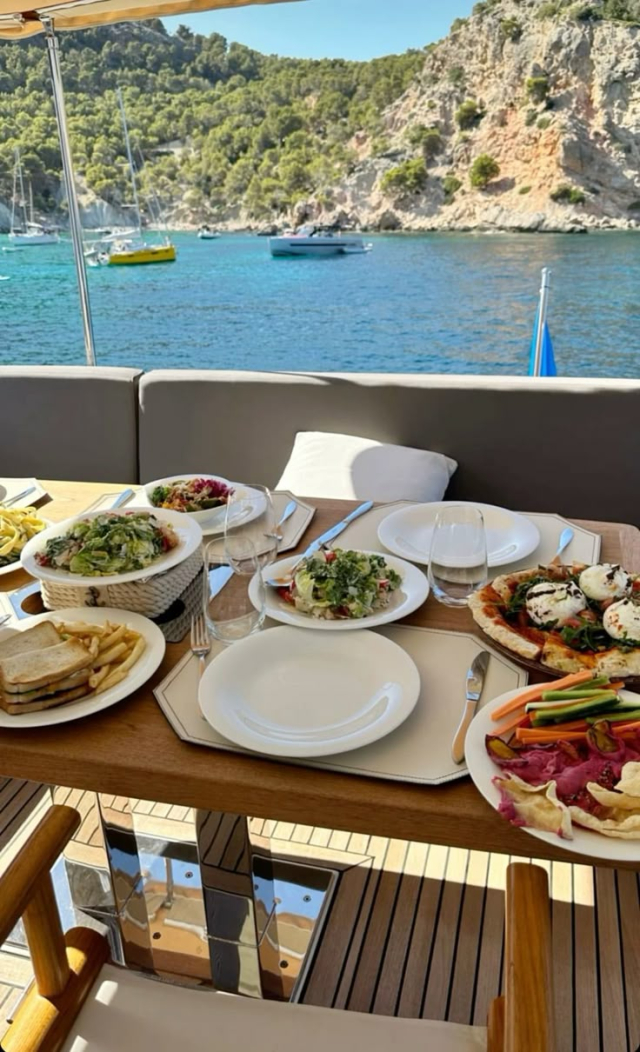
The main advantage of cooking on your own is the cost savings . Hiring a chef on board involves a considerable additional cost, as you are not only paying for their service, but also for planning a specialized menu and purchasing premium ingredients. If you decide to cook yourself, you can better control your budget and choose products that fit your needs without unnecessary expenses.
Another benefit is flexibility. When you prepare your own food, you can decide what and when to eat without being dependent on set schedules. This is especially useful on pleasure cruises, where activities may extend longer than planned and food needs to be adjusted to the dynamics of the day.
Cooking can also be a time for socializing with your companions . Dividing up tasks, such as heating up food, preparing snacks, or serving drinks, can be a social activity that enhances the travel experience. It's not about making elaborate dishes, but about sharing and enjoying the process.
There's also customization. If you have dietary restrictions, follow a specific diet, or simply prefer certain ingredients , cooking on board allows you to ensure that each meal is tailored to your tastes and needs. While options may be more limited, you can plan ahead and bring ready-to-heat foods that suit your eating style.
Finally, having control of the kitchen allows you to take advantage of fresh, local produce. If your journey includes stops at markets or coastal towns, you can purchase fruit, artisan bread, or fresh seafood that, with simple preparation, will elevate the dining experience without the need for a chef.
You may also be interested in: Restaurants in Tayrona Park
Disadvantages of cooking on your own on a boat
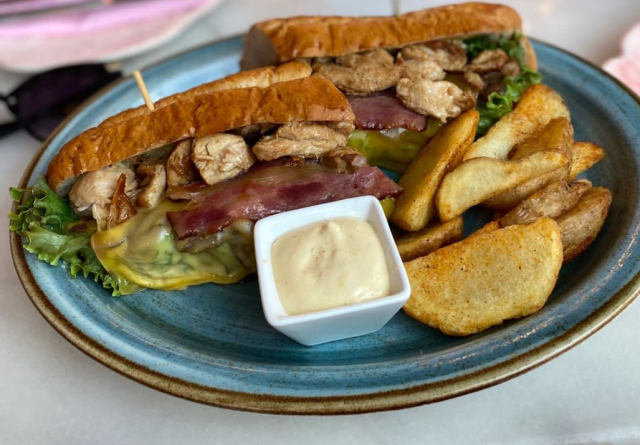
Despite its advantages, cooking on a boat presents several challenges. The first is the limitation of space . Unlike a conventional galley, most boats have compact kitchens, with little storage space and reduced work surfaces. This makes preparing elaborate meals impractical and even tiring.
Another drawback is the lack of certain equipment . Not all boats have grills or barbecue pits, so options like grilled meats or broiled seafood may not be feasible. In many cases, boats only have a small stove or microwave, further limiting possible preparations. Sourcing ingredients can also be a challenge. Before setting sail, you need to plan carefully what food to bring and make sure it will keep well during the trip . Unlike at home, where you can replenish at any time, on the high seas options are limited and any mistake in planning can mean running out of certain essentials.
Another factor to consider is safety . Cooking on a moving boat requires extra precautions to avoid accidents, such as burns or cuts. Boats are not designed for complex galley maneuvers, so it is advisable to avoid using dangerous utensils or ingredients that require complicated techniques. In addition, preparing food takes time and effort. After a day of sailing, swimming, or exploring, it can feel tedious to deal with the kitchen instead of relaxing. While simple preparations can solve this problem, it still requires a certain degree of organization and dedication.
Finally, there is the issue of cleanliness . On a boat, fresh water is a limited resource, which makes washing dishes and utensils more complicated than on land. The lack of dishwashers and the need to optimize water use can make cleaning an unpleasant task.
We invite you to take a look at other articles at: https://yate.co/en/blog

